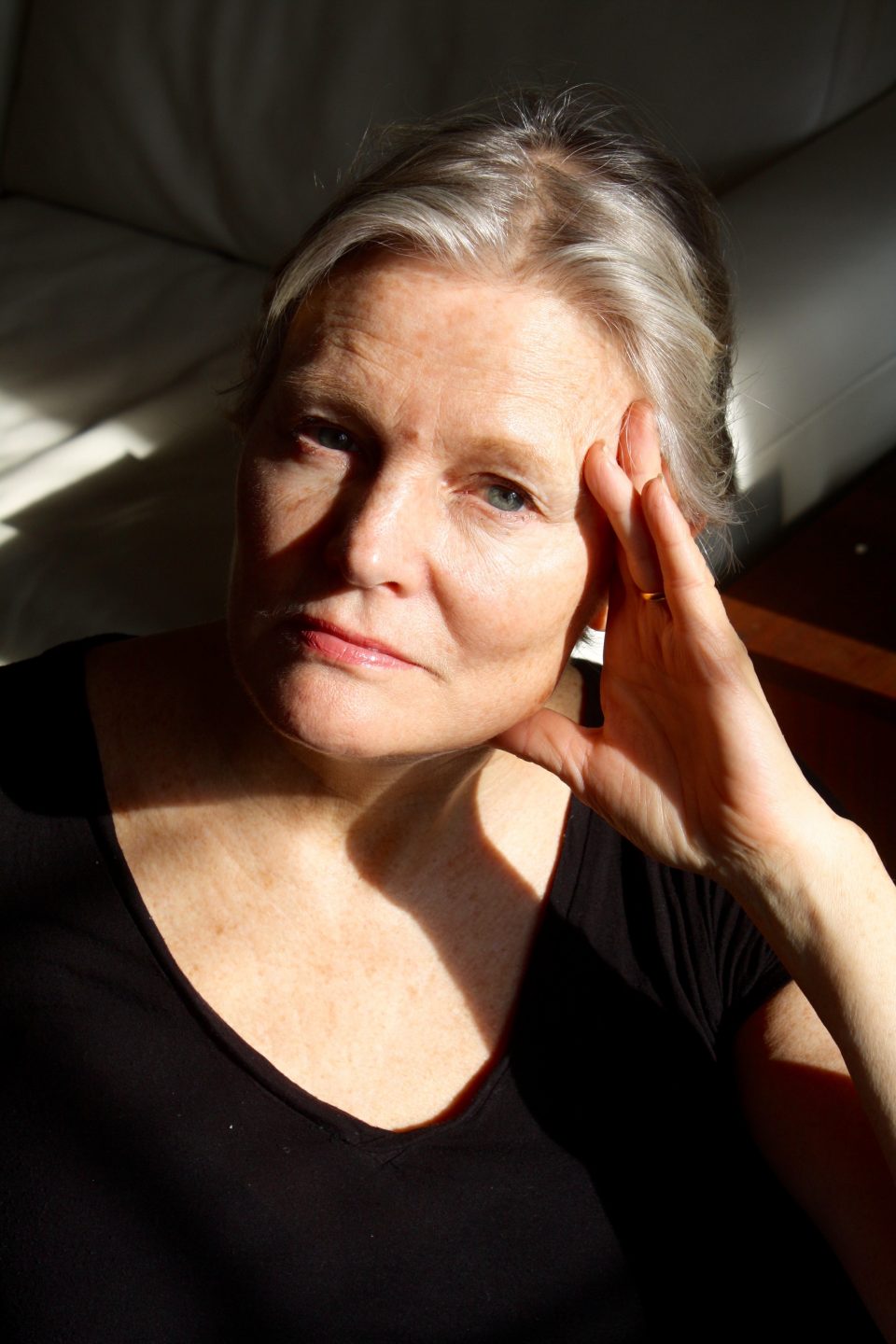
American Psycho Director Mary Harron Discusses her New School Residence and Film Career
Mary Harron, the director best known for films such as American Psycho and Killing Andy Warhol, recently spent three days leading master classes and sharing her filmmaking process with New School students as the School of Media Studies Summer 2020 Dorothy H. Hirshon Director in Residence. New School News interviewed the esteem director to discuss her career and the film and television industries.
New School News: Who were your early influences in filmmaking?
Harron: So many influences! My parents took us to whatever films they wanted to see so I saw a lot of art films which would now be considered unsuitable for a child. I saw Fellini’s 81/2 when I was ten, and stuff like Bergman and Satyajit Ray. I don’t know how much I understood of it but I loved them. And I saw a lot of Hitchcock: Strangers on a Train made a big impression. I lived in London as a teenager and I started going to see old films at the National Film Theatre and discovered Fritz Lang and noir movies like Double Indemnity. And I was a big fan of Howard Hawks. And I started watching Polanski and Claude Chabrol. But I also saw a lot of Hollywood movies, like anyone would. As an adult I was inspired by Drugstore Cowboy and Blue Velvet, and by Jane Campion’s The Piano, which were all forerunners of independent film.
New School News: What do you want students to take away from the experience of your residency and what would you like to take away from the experience?
Harron: I enjoy talking to students and hearing what they are interested in and how they see the world right now. But I don’t enjoy having to look at my past work. When I have to watch it again, all I see are the flaws.
New School News: What goes into determining how you decide to pursue a project?
Harron: I think it is always an intuitive decision. You have to feel so strongly about the material and be so interested in it that that excitement will pull you through all the delays and obstacles and disappointments that you inevitably encounter on the road to getting a film made.
New School News: Can you talk about the differences between directing for television and film? Have the lines between the two mediums become more similar in the streaming era?
Harron: Television has definitely become much more visually sophisticated. And I think most directors do cross over. Making a limited series where you direct all the episodes, as I did with Alias Grace for Netflix, is really just like making a very long movie. Doing an episodic show is a different experience because it is the writers and show runners who are in charge. In that situation you just come in for a few weeks and need to fit into a show that has already been established.
New School News: How has filmmaking opportunities changed for women in the last several years? In what ways have they improved? What still needs to be done to level the playing field and improve opportunities for women filmmakers?
Harron: I’ve been asked about women in film every year for the past twenty five years. For the first fifteen years the situation never really changed. But in the last few years I really feel there has been a breakthrough. There are so many wonderful women filmmakers all over the world, it’s hard to see how we could go back to the bad old days. What I would like to see most of all is more women in every position in the crew. Having other women on set changes the atmosphere in a very beneficial way.
New School News: Do you have any upcoming projects you can discuss? What historical figures would you still like to make a film about?
Harron: My husband and I have written a film about the last years of Salvador Dali that we were hoping to film later this year but that has been delayed. Everyone is trying to work out new protocols for filming in the wake of this virus.
New School News: What advice do you give aspiring filmmakers and how does that advice differ now from five or ten years ago?
Harron; The basic advice is the same. Be ready for disappointment, develop endurance, try not to let rejection stop you from pursuing something you believe in. My more up to date advice is to be open to all kinds of different formats, because it’s all storytelling. I also have to say that in the early days, I did a lot of work for free. I got paid nothing for the screenplay for my first film. I had different TV jobs and wrote in my spare time. And I have to say I learned a lot from all the jobs I did to make a living while I was trying to write scripts.